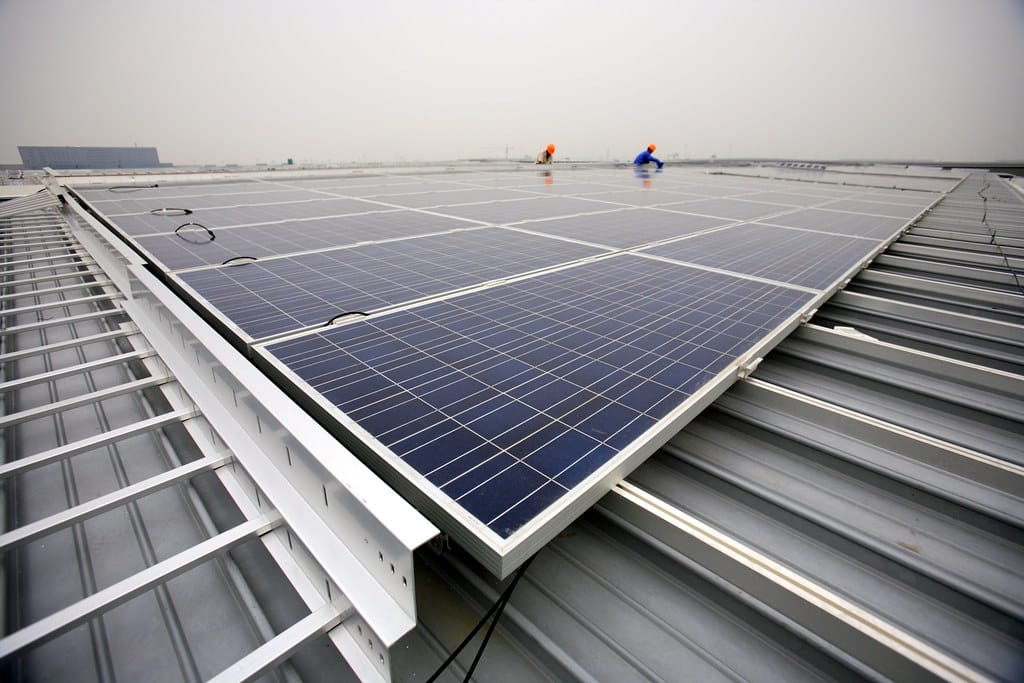Thinking about “going solar” at your house? We finally did at our home and couldn’t be happier. We’ve been generating our own power since June – and have even starting getting credits on our bill from the power company since we’re generating more than we’re using.
In addition to generating power AND selling excess energy back to the power company (called net metering) to get a credit on your bill, you may also hear about an additional benefit called an SREC or REC, which stands for (Solar) Renewable Energy Credit or Certificate. An SREC is a per megawatt-hour (measure of electricity production / use) intangible benefit that doesn’t interfere with net metering or credits from the power company.
Big companies, mostly utilities, purchase batches of these SRECs from brokers (like Carbon Solutions Group, in my case) as it’s much more efficient than buying them from individual solar producers (homes). In some states, regulators require that electricity providers obtain a certain amount of energy from solar energy systems. And, buying SRECs helps satisfy these regulations – and reduces their carbon footprint.
As an energy producer, we can accumulate and sell these SRECs (which truly have no value to us otherwise) to brokers, who will then bundle and sell them to large companies. The alternative would be to just do nothing…and leave “a little free money” on the table. In total, it could be enough to offset a portion of the price of your solar system – or provide for a nice gift for your spouse!
In my case, there were several options to consider for selling our SREC’s:
- A one-time lump sum payment (basically the present value of 15 year’s worth of expected solar production) @ $15 per SREC (discounted value of current spot price). It’s the lowest per unit payout since it’s a lump sum and has highest risk to buyer. (This would amount to an approximate lump sum payment to us of $4000).
- A 5-year lump sum – Since we’re only locking for a five-year term and not 15, the price is now $40 per SREC. The lump sum would be ~$3,800 and you would still have 10 years left to re-up on another contract as compared to option 1.
- A 3-year lump sum – Now we’re only locking for a three-year term and the price per SREC is even higher at $52 per. The lump sum for this period would be ~$2,900 and you would still have 12 years left to re-up on another contract as compared to option 1.
- Finally, you have the “market based” approach, which gives the annual option (or perhaps twice per year) to sell your SREC’s based on the current market price. Right now, the current market price is $70 per SREC – much higher than that offered in option 1 of $15. You’re not locked in for any period of time and can take / leave annual offers based on the market price at the time.
SREC’s appear to retain little value if you don’t sell them. A broker may offer to buy old SREC’s from you (they call them “retro rec’s”), but the current price is only $8 per SREC. That’s quite a large discount from the current market price of $70. So it’s best to start selling your SRECs right out of the gate since they essentially become worthless.
Some brokers have agreements with certain solar installers like our’s – and can get production readings directly from them. So, SREC sellers like us apparently have very limited ongoing responsibilities.
Let’s say you decide to sell your house or get rid of your system – in most cases you can transfer the contract to the new owner (although they may get no additional money depending on the option selected above). Or alternatively, if the new owner didn’t want to continue the contract or if you shut your system down, you may be asked to pay back a prorated portion of your lump sum if the broker paid you for several years of future production they will no longer be getting. Seems reasonable to me!
Anyway, if you factor in the fact that you are energy independent, reducing your reliance on the grid for energy, selling clean energy back to the power company – AND have this added benefit of selling your SREC’s – it seems like a great combination.
We’ll report back after a year or so and let you know about our experience.
John B. Clair is a Certified Financial Planner™ professional (CFP®) and NAPFA-registered financial advisor. EVOadvisers is a fee-only financial advisor based in the Scott’s Addition area of Richmond, Virginia. EVOadvisers also has an office in Irvington, Virginia to better serve clients in the Northern Neck of Virginia. If you have any questions about financial planning and would like to talk with one of our Certified Financial Planner professionals, check us out at www.evoadvisers.com or call (804)794-1981.


